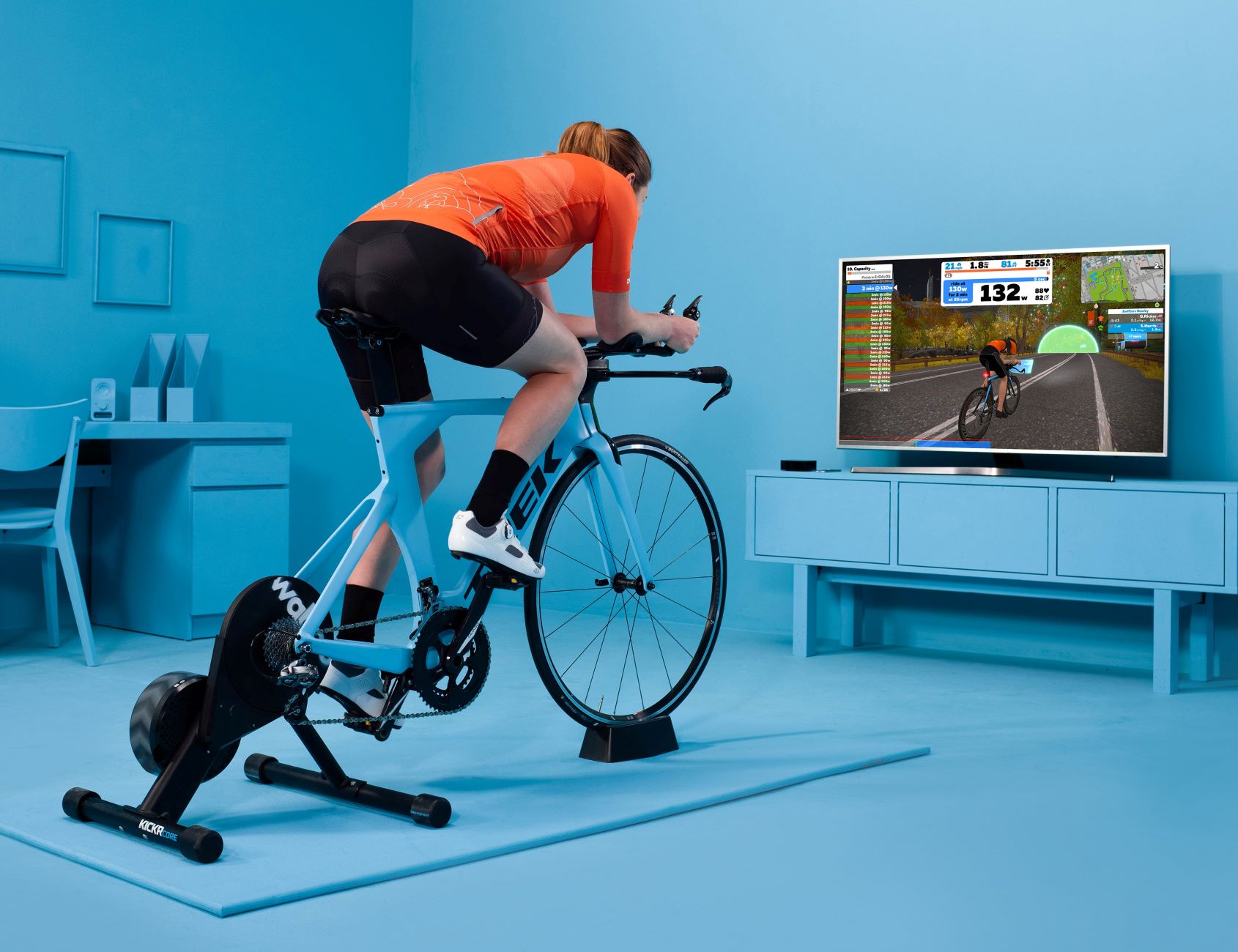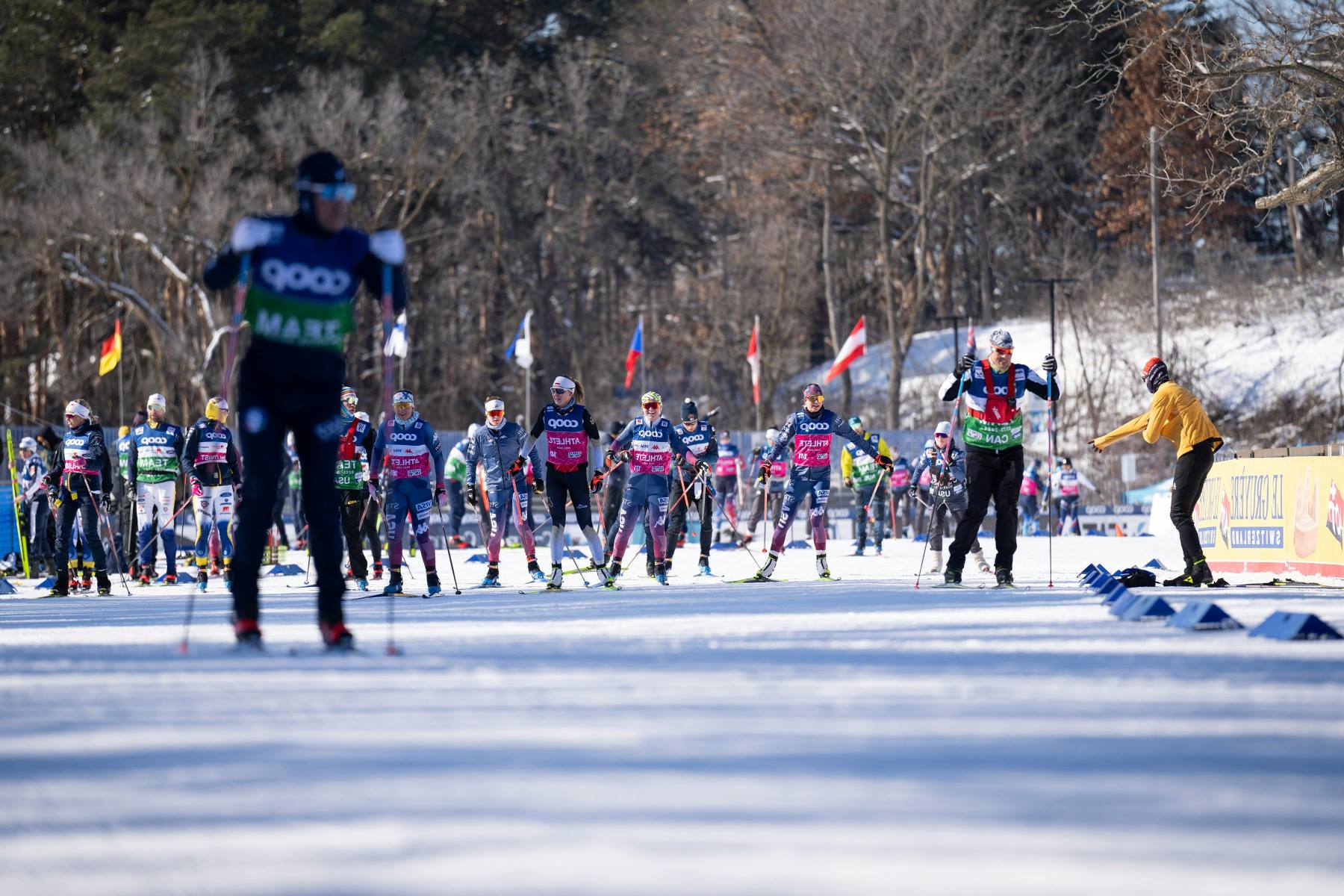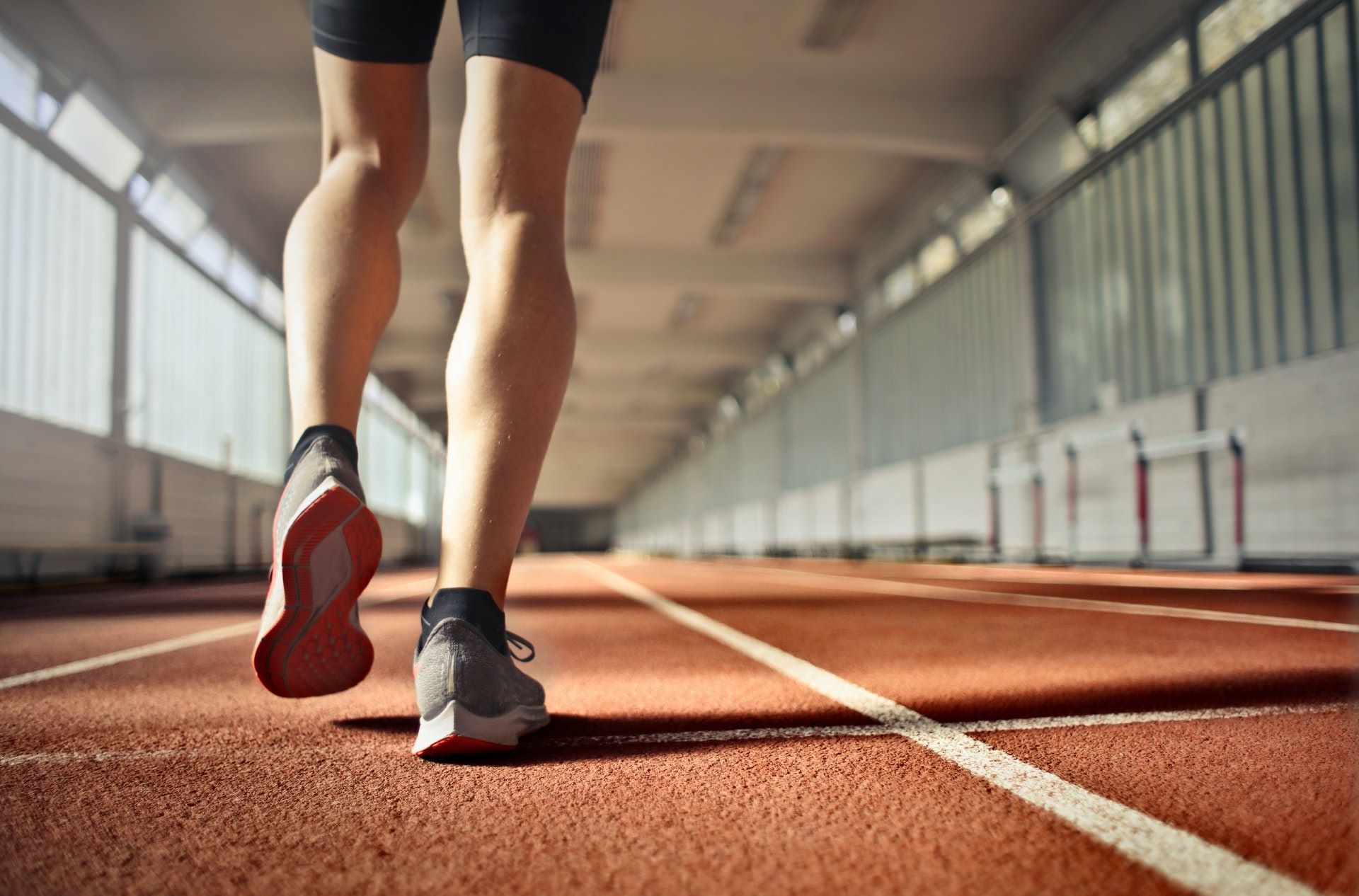Home>Health & Nutrition>Understanding The Dizziness Experienced By Runners After Racing


Health & Nutrition
Understanding The Dizziness Experienced By Runners After Racing
Published: February 24, 2024
Learn about the causes and management of post-race dizziness in runners. Explore health and nutrition tips to prevent and address this issue.
(Many of the links in this article redirect to a specific reviewed product. Your purchase of these products through affiliate links helps to generate commission for Therunningadvisor.com, at no extra cost. Learn more)
Table of Contents
The Causes of Post-Race Dizziness
Post-race dizziness is a common phenomenon experienced by runners after completing a race. This sensation of lightheadedness or unsteadiness can be attributed to various factors, all of which contribute to the body's response to the physical exertion of running. Understanding the causes of post-race dizziness is crucial for both runners and health professionals in order to effectively address and prevent this issue.
-
Dehydration: One of the primary causes of post-race dizziness is dehydration. During a race, the body loses a significant amount of fluid through sweating. This loss of fluid can lead to a decrease in blood volume, resulting in reduced blood flow to the brain. As a consequence, dizziness and lightheadedness may occur due to the brain not receiving an adequate supply of oxygen and nutrients.
-
Heat and Humidity: Running in hot and humid conditions can exacerbate the risk of post-race dizziness. High temperatures and humidity levels can intensify the body's fluid loss through sweating, further contributing to dehydration. Additionally, the body's natural cooling mechanism, sweating, can lead to an imbalance in electrolytes, such as sodium and potassium, which are essential for maintaining proper fluid balance and nerve function.
-
Blood Pressure and Heart Rate Changes: The physiological demands of running can lead to fluctuations in blood pressure and heart rate. During a race, the cardiovascular system works vigorously to supply oxygen-rich blood to the working muscles. Once the race is completed, abrupt cessation of intense physical activity can cause a rapid drop in blood pressure, leading to dizziness and a feeling of lightheadedness.
-
Hypoglycemia: In some cases, post-race dizziness may be attributed to low blood sugar levels, known as hypoglycemia. Prolonged or intense exercise can deplete the body's glycogen stores, leading to a decrease in blood glucose levels. This can result in symptoms such as dizziness, weakness, and confusion.
-
Postural Hypotension: After completing a race, runners may experience postural hypotension, a condition characterized by a sudden drop in blood pressure upon standing. This can lead to dizziness and lightheadedness as the body struggles to adjust to the change in position.
By understanding the multifaceted causes of post-race dizziness, runners can take proactive measures to mitigate these factors and minimize the risk of experiencing dizziness after racing. Additionally, healthcare professionals can provide targeted guidance to help runners prevent and manage post-race dizziness effectively.
The Role of Dehydration in Runner's Dizziness
Dehydration plays a pivotal role in the onset of dizziness experienced by runners after completing a race. As runners engage in physical activity, their bodies undergo a continuous process of fluid loss through sweating. This fluid loss, if not adequately replenished, can lead to dehydration, setting the stage for post-race dizziness.
During a race, the body's demand for oxygen and nutrients increases, prompting the cardiovascular system to work tirelessly to deliver oxygen-rich blood to the working muscles. As a result, the body's core temperature rises, triggering the natural cooling mechanism of sweating. While sweating is essential for regulating body temperature, it also leads to the loss of vital fluids and electrolytes, such as sodium and potassium.
Dehydration amplifies the risk of post-race dizziness by causing a reduction in blood volume, which subsequently decreases blood flow to the brain. This diminished blood flow deprives the brain of the necessary oxygen and nutrients, culminating in feelings of lightheadedness and unsteadiness. Furthermore, dehydration can disrupt the body's electrolyte balance, further exacerbating the risk of dizziness.
Runners must be vigilant in maintaining proper hydration levels before, during, and after a race to mitigate the impact of dehydration on post-race dizziness. Adequate fluid intake before the race helps to preemptively combat the fluid loss that will occur during the race. During the race, strategic consumption of fluids at designated water stations is crucial for replenishing lost fluids and electrolytes. Post-race, rehydration is equally vital to restore the body's fluid balance and support recovery.
In addition to fluid intake, runners should be mindful of their electrolyte levels, as imbalances can contribute to dizziness. Incorporating electrolyte-rich beverages or supplements can aid in maintaining the body's electrolyte equilibrium, thereby reducing the risk of post-race dizziness.
Understanding the pivotal role of dehydration in post-race dizziness empowers runners to prioritize proper hydration as an integral component of their race preparation and recovery. By proactively addressing dehydration through strategic fluid intake and electrolyte management, runners can minimize the likelihood of experiencing dizziness after racing, thereby optimizing their overall race experience and post-race well-being.
Understanding the Impact of Heat and Humidity on Dizziness
The impact of heat and humidity on dizziness among runners is a critical consideration in understanding the complexities of post-race physiological responses. When runners engage in races under high-temperature conditions, the body's thermoregulatory mechanisms are put to the test. As the ambient temperature rises, the body's natural response is to dissipate heat through sweating, thereby maintaining a stable internal temperature. However, this process of evaporative cooling comes with its own set of challenges, particularly in the context of fluid and electrolyte balance.
High temperatures and humidity levels intensify the body's fluid loss through sweating, leading to an increased risk of dehydration. Dehydration, as previously discussed, can result in reduced blood volume and compromised blood flow to the brain, ultimately contributing to dizziness and lightheadedness. Furthermore, the loss of electrolytes, such as sodium and potassium, through excessive sweating can disrupt the body's delicate electrolyte balance, further exacerbating the risk of dizziness.
In addition to the direct impact on fluid and electrolyte balance, heat and humidity can also elevate the overall physiological strain on the body during a race. The combination of high temperatures and physical exertion places additional stress on the cardiovascular system, as the body works to redirect blood flow to the skin for cooling purposes while simultaneously meeting the demands of the working muscles. This intricate balancing act can lead to an increased heart rate and higher cardiac output, further challenging the body's ability to maintain stable blood pressure and adequate cerebral perfusion.
Moreover, the environmental conditions of heat and humidity can impede the body's natural cooling mechanisms, potentially leading to heat-related illnesses such as heat exhaustion or heat stroke. These conditions can manifest with symptoms of dizziness, weakness, and confusion, further underscoring the profound impact of environmental factors on post-race well-being.
Understanding the impact of heat and humidity on dizziness is paramount for runners and race organizers alike. By recognizing the intricate interplay between environmental conditions, fluid and electrolyte balance, and cardiovascular strain, proactive measures can be implemented to mitigate the risk of post-race dizziness. Strategies such as acclimatization to hot conditions, strategic fluid intake, and adjustments to race timing or course design can all contribute to minimizing the impact of heat and humidity on post-race dizziness, ultimately enhancing the safety and well-being of runners in challenging environmental conditions.
How Blood Pressure and Heart Rate Changes Contribute to Post-Race Dizziness
The intricate interplay between blood pressure and heart rate dynamics significantly contributes to the occurrence of post-race dizziness among runners. During a race, the cardiovascular system undergoes substantial physiological demands as the body strives to meet the heightened oxygen requirements of the working muscles. As a result, heart rate and blood pressure undergo dynamic fluctuations, playing a pivotal role in the body's response to the physical exertion of running.
Upon commencing a race, the body's sympathetic nervous system is activated, leading to an increase in heart rate and blood pressure to meet the escalating oxygen demands of the muscles. This surge in cardiovascular activity is essential for delivering oxygen-rich blood to the working muscles, enabling optimal performance during the race. However, as the race concludes, the abrupt cessation of intense physical activity can trigger a rapid decline in heart rate and blood pressure, potentially leading to post-race dizziness.
The sudden drop in blood pressure upon completing a race can result in reduced cerebral perfusion, as the brain may not receive an adequate supply of blood and oxygen. This diminished cerebral blood flow can manifest as dizziness, lightheadedness, or a sensation of unsteadiness, as the brain struggles to adapt to the altered cardiovascular dynamics. Furthermore, the body's autonomic nervous system, responsible for regulating heart rate and blood pressure, may require time to recalibrate following the cessation of intense physical activity, further contributing to the potential for post-race dizziness.
Moreover, individual variations in cardiovascular responsiveness can influence the susceptibility to post-race dizziness. Runners with a predisposition to orthostatic intolerance, characterized by an inability to maintain stable blood pressure upon standing, may be particularly susceptible to post-race dizziness. The combination of orthostatic stress and the physiological aftermath of intense exercise can exacerbate the risk of dizziness, underscoring the multifaceted nature of the cardiovascular contributions to post-race well-being.
Understanding the intricate relationship between blood pressure and heart rate changes and their impact on post-race dizziness is essential for both runners and healthcare professionals. By recognizing the dynamic cardiovascular adaptations that occur during and after a race, targeted strategies can be implemented to mitigate the risk of post-race dizziness. These may include gradual cooldown exercises, post-race hydration, and measures to support cardiovascular recovery, ultimately enhancing the overall well-being and race experience of runners.
Strategies for Preventing and Managing Dizziness After Racing
Implementing effective strategies for preventing and managing dizziness after racing is paramount to safeguarding the well-being and performance of runners. By proactively addressing the multifaceted factors that contribute to post-race dizziness, runners can optimize their race experience and promote post-race recovery. Here are key strategies to consider:
-
Hydration Management: Prioritizing adequate hydration before, during, and after a race is fundamental in mitigating the risk of post-race dizziness. Runners should develop personalized hydration plans, considering factors such as sweat rate, environmental conditions, and individual fluid needs. Strategic fluid intake, including water and electrolyte-rich beverages, can help maintain optimal hydration levels and support cardiovascular function.
-
Electrolyte Balance: Maintaining a healthy electrolyte balance is essential for preventing dizziness after racing. Incorporating electrolyte-rich foods and beverages, such as bananas, coconut water, and sports drinks, can aid in replenishing lost electrolytes and minimizing the risk of imbalance-induced dizziness.
-
Gradual Cool Down: Engaging in a gradual cool-down routine post-race can facilitate the body's transition to a resting state, minimizing the abrupt drop in blood pressure and heart rate. Light jogging, stretching, and controlled breathing exercises can help the cardiovascular system gradually return to baseline, reducing the likelihood of post-race dizziness.
-
Post-Race Nutrition: Consuming a balanced post-race meal or snack that includes carbohydrates, protein, and healthy fats can support glycogen replenishment and muscle recovery. Stable blood sugar levels can help prevent hypoglycemia-induced dizziness, promoting overall post-race well-being.
-
Orthostatic Training: Implementing orthostatic training, which involves gradually adapting the body to changes in posture, can enhance the body's ability to maintain stable blood pressure upon standing. This can be particularly beneficial for runners prone to postural hypotension and orthostatic intolerance, reducing the risk of dizziness after racing.
-
Environmental Considerations: When racing in hot and humid conditions, acclimatization, strategic race timing, and course design modifications can help mitigate the impact of environmental stressors on post-race dizziness. Additionally, wearing appropriate clothing and utilizing cooling strategies, such as ice towels or misting stations, can aid in temperature regulation and minimize the risk of heat-related dizziness.
-
Professional Guidance: Seeking guidance from healthcare professionals, such as sports medicine physicians or registered dietitians, can provide personalized insights and recommendations for preventing and managing post-race dizziness. Professional support can encompass tailored hydration plans, nutritional guidance, and individualized strategies based on the runner's unique physiological responses.
By integrating these proactive strategies into their race preparation and recovery routines, runners can effectively mitigate the risk of post-race dizziness and optimize their overall well-being. Embracing a holistic approach that encompasses hydration, nutrition, cardiovascular recovery, and environmental considerations empowers runners to enjoy a fulfilling and dizziness-free post-race experience.
















